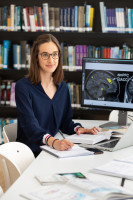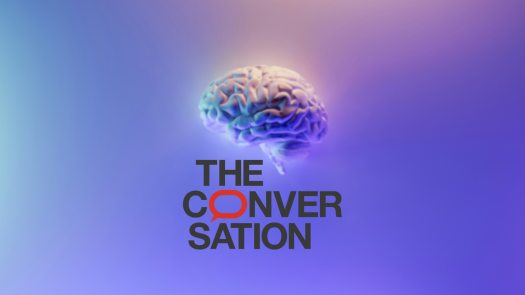Mental Health & Neurology
Mental Disorders, Anxiety & Depression
Brain Mechanisms & Psychology
Post-Doctoral Fellowships
France
2020.11.30
Self-beliefs: Mathematical models of self believe and link with mental health
Decoding Confidence: How Our Brains Shape Our Beliefs and Decisions
The beliefs we hold about ourselves and our abilities significantly influence our life trajectories. These self-beliefs can be distorted in certain mental health conditions. For instance, a person with depression may falsely believe they are unlikely to succeed, while a person with dementia may maintain confidence in their abilities despite failures.
Dr Rouault’s AXA research aimed to understand the mechanisms underlying these self-beliefs, with a particular focus on how self-confidence affects decision-making.
Using mathematical models and neuroimaging, she studied how self-beliefs are formed and updated over time, and gained insights into how different forms of confidence metacognitive levels interact in the human brain. She also investigated how self-beliefs updates are associated with mental health symptoms, such as anxiety and depression.
This research has the potential to impact a variety of educational policies, clinical practices and societal norms. Here are a few examples to date :
In education:
Through a collaboration with the Conseil Scientifique de l'Education Nationale, a webapp was designed to evaluate metacognition, and data from hundreds of adults and adolescents has been collected. Their analysis will help establish evidence-based public policy recommendations for promoting critical thinking in schools.
In medicine:
Collaboration with clinicians has evidenced that doctors are often overconfident in their medical decisions, but they also have higher confidence in correct decisions compared to errors. This finding could help improve our understanding of medical decision-making and ultimately support doctors in making better decisions.
In mental health:
Investigating the association between decision making and mental health symptoms fluctuation allowed to establish that individuals with compulsive disorders make choices that are variable and maladaptive, yet they still properly learn understand the value of different choice options. This insight could benefit individuals affected by mental health disorders in their self-esteem and decision-making.
Finally, a collaboration with NeuroSpin, CEA will allow enhanced neuroimaging data analysis of a central node in the computation of confidence.
More about Marion Rouault here
Scientific Publications:
Find out more about Marion’s research accessing her scientific publications in international peer-reviewed journals, a book chapter on Decision and Learning, all accessible in PDF, here
Outreach activities and publications:
An article written for The Conversaition : The secrets to self-confidence, according to cognitive science,
A press release by Inserm Comment réagit notre cerveau quand nous explorons quelque chose de nouveau ? - Salle de presse de l'Inserm

Marion
ROUAULT
Institution
Ecole Normale Supérieure
Country
France
Nationality
French
Related articles
Mental Health & Neurology
Extreme Weather Events
Pollution
Alzheimer's Disease, Dementia & Neurodegenerative Diseases
Droughts & Heatwaves
Air Quality
Mécénat des Mutuelle
France
CLIMABRAIN: Impacts of Extreme Weather on the Most Vulnerable Living with Alzheimer's disease
In the context of the increase in extreme weather events due to climate change, the project led by Tarik Benmarhnia... Read more

Tarik
BENMARHNIA





